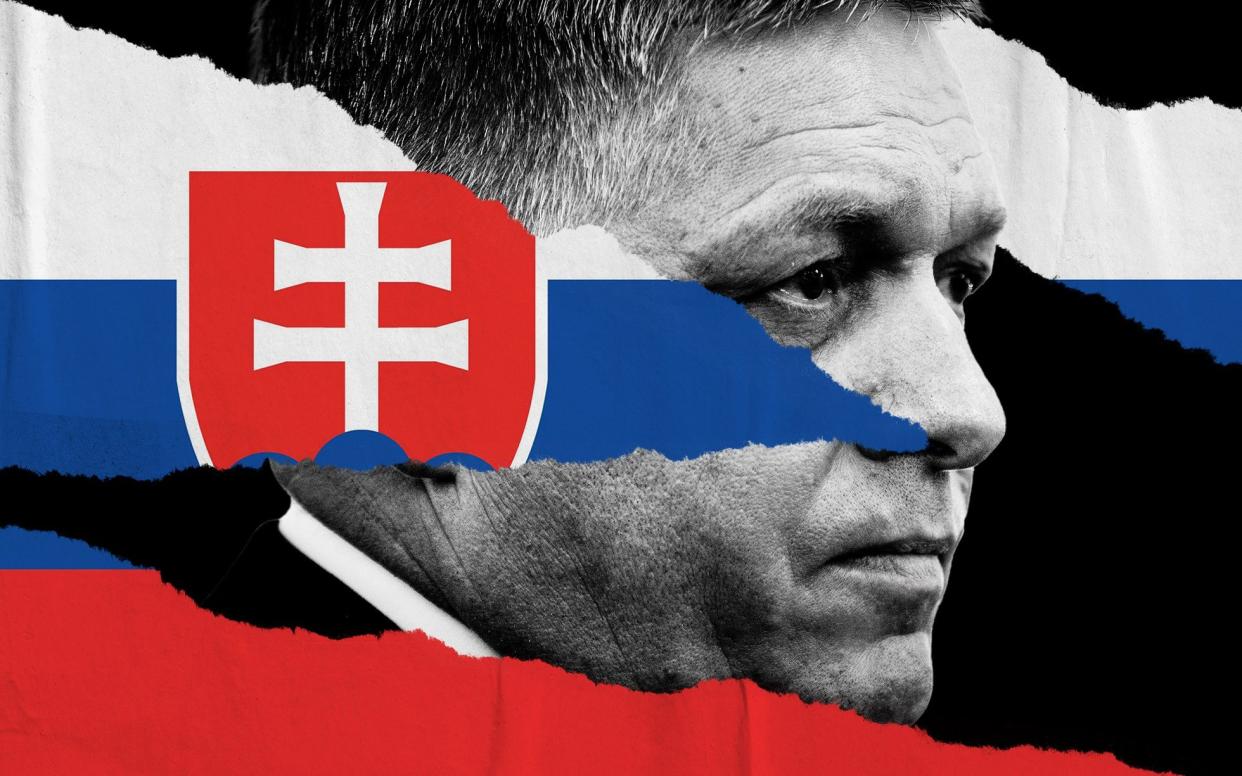How ties to Italy’s Mafia brought Robert Fico’s second term to an abrupt end in Slovakia

- Oops!Something went wrong.Please try again later.
The placard seemed to express the fury of a nation.
As tens of thousands of people took to the streets calling for Robert Fico to resign as prime minister of Slovakia in 2018, one protester had scrawled the words “mafia prostitute” across a strip of cardboard.
Mr Fico was depicted in the striped black-and-white uniform of a prisoner – an indication the crowds wanted him jailed over the murder of Jan Kuciak, an investigative journalist who had been exploring links between government advisers and organised crime.
Kuciak was shot dead along with his fiancée at their home outside Bratislava, provoking a wave of horror in a nation that had become almost inured to stories of corruption.
The 27-year-old journalist had been investigating alleged links between government figures and the ‘Ndrangheta, the powerful Italian mafia based in the southern region of Calabria.
He alleged that the Italian mafia had acquired farmland in eastern Slovakia through intimidation and then fraudulently claimed massive EU subsidies. In exchange, it was alleged, the Fico government received generous “mediation fees”.
The reporter also uncovered the fact that a topless model and Miss Universe contestant who was appointed as a senior aide to the prime minister had previously been the girlfriend of an alleged ‘Ndrangheta cocaine smuggler.
Mr Fico was accused of running a mafia state in collusion with corrupt businessmen, tax officials and police officers – charges he denied.
But just days later, he was forced to resign.
Fico bounces back
That was then. Despite the corruption accusations, Mr Fico eventually bounced back.
In an election last September, he ran on a pro-Russia campaign of no longer giving military support to Ukraine, amid opinion polls which suggested that a third of Slovaks believe the war was provoked by the West.
Aware of the waning public support for Kyiv’s war effort, he told supporters that if he returned to power “we will not send a single round of ammunition to Ukraine”.
His populist party, known as Direction or SMER, won the most votes in the election and he was able to form a coalition with two other parties, embarking on his fourth term as prime minister.
Once back in power, one of his first acts was to abolish a special prosecutor’s office that was investigating organised crime and corruption.
He shut down the anti-corruption body in February despite warnings from the EU that the move would compromise the rule of law in Slovakia.
His decision provoked widespread street protests which mirrored the demonstrations that were held after the murder of Mr Kuciak in 2018.
Mr Fico was investigated by the office but the charges were dropped in 2022. Several people linked to his party face prosecution for alleged corruption.
‘In vengeful mode’
In December the prime minister described the special prosecutor’s office as “evil”.
“He was in a vengeful mode and got rid of an institution that was going after his cronies, that was very critical of all the crooks and criminals,” said Samuel Abraham, a political analyst in Slovakia.
The shooting of the prime minister comes against a backdrop of partisan, deeply divided politics, which was evident during the parliamentary elections in the autumn and the more recent presidential election last month.
The presidential contest was won by Peter Pellegrini, who was prime minister from 2018 to 2020 after his ally Mr Fico was toppled.
Mr Pellegrini called his opponent, Ivan Korcok, a pro-Western diplomat a “warmonger” because of his support for Ukraine against Russia.
Conceding defeat, an embittered Mr Korcok said: “It turns out that it is possible to become the president of the Slovak Republic by spreading hatred.” He said he had been unfairly characterised as a “war candidate”.
It is in the context of this heated political atmosphere that the prime minister was shot multiple times in a town 85 miles outside Bratislava in a suspected assassination attempt.
“The recent political campaigns have been full of hatred and division. Sooner or later someone with a gun, perhaps some kind of weirdo, was going to pull the trigger. You reap what you sow,” said Mr Abraham.

